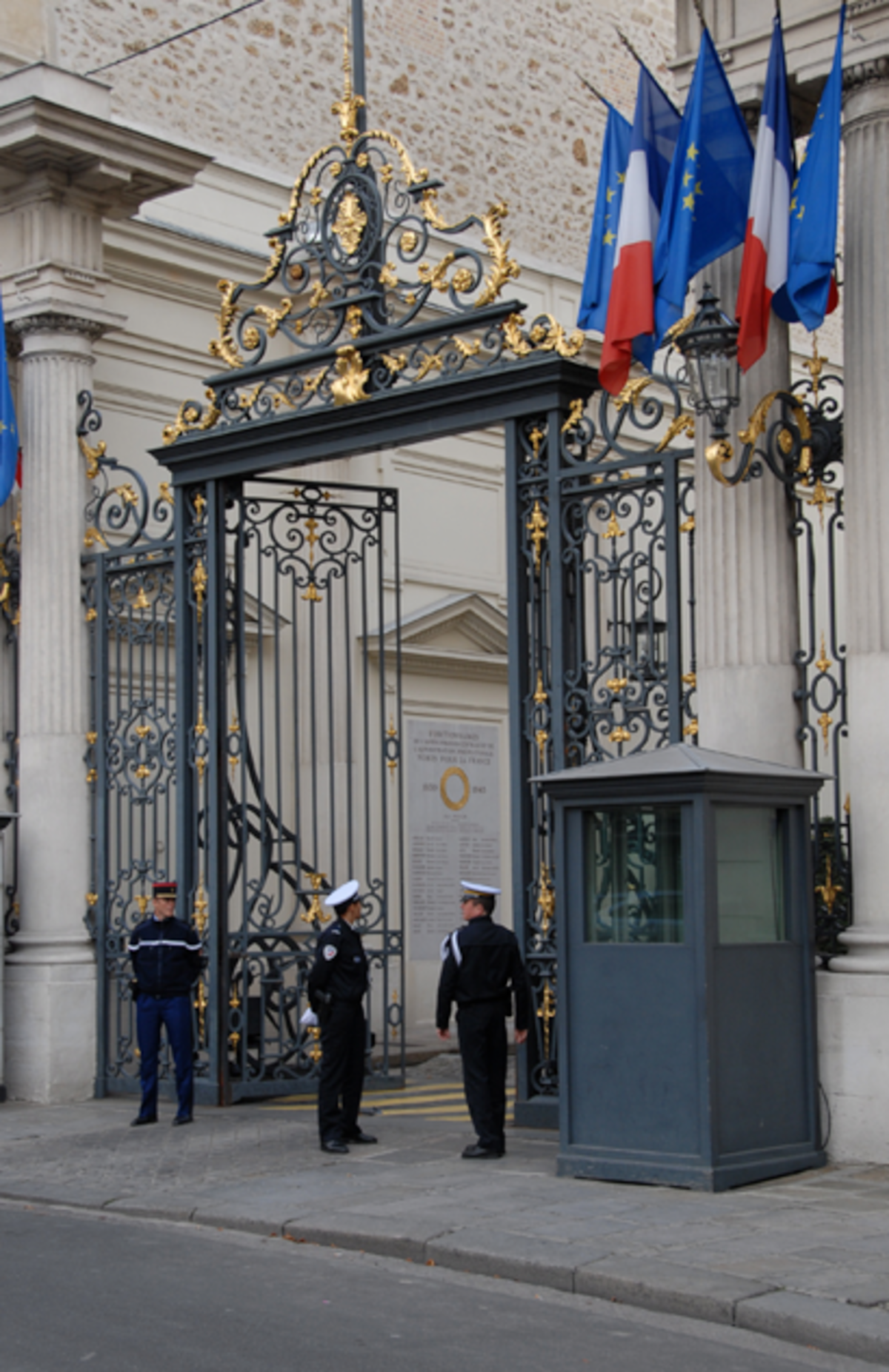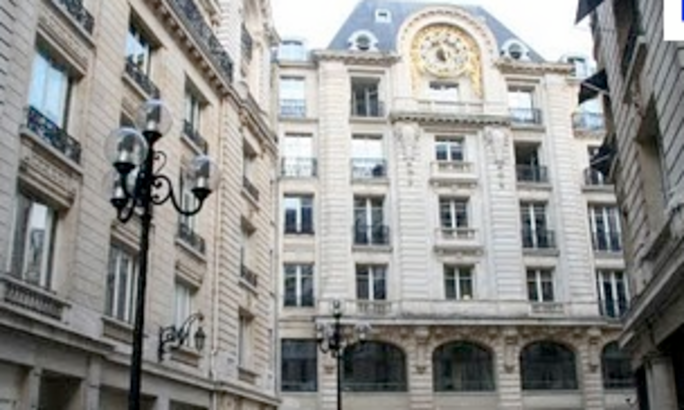While President Nicolas Sarkozy has made cracking down on crime a hallmark of his policies, in particular regarding juvenile delinquents, French justice has become alarmingly coy in dealing with white-collar financial crime, according to a report from the French branch of the anti-corruption NGO Transparency International. Michel Deléan reviews the findings.
-------------------------
Zero tolerance for some, maximum leeway for others. That is the conclusion that emerges from a recent report from the French section of Transparency International (TI), which found French law enforcement institutions under the presidency of Nicolas Sarkozy have become lax on financial crime while given tougher measures to use against street crime.

Enlargement : Illustration 1

The anti-corruption group's report, entitled ‘Threat to the rule of law and the need for reforms in financial justice' (Etat de droit menacé: l'indispensable réforme de la justice financière') and published in June, was compiled by a team of magistrates, lawyers, police officers and jurists who are members of TI France. It runs to 51 pages.
They begin by noting that both human and material resources for fighting corruption have been eroded for both the police and the judiciary. The number of police officers specialising in financial crime has been falling for several years, and there have been constant transfers between departments, entailing the loss of a pool of knowledge and vital experience and memory of cases, the report found.
Worse, the economic and financial sub-department at the Direction Centrale de la Police Judiciaire (DCPJ), the French Criminal Investigation Department, which had been given a broader remit in 2006, was abolished in 2009. "Its specific economic and financial identity was thereby totally removed," the report said.
"This abolition involved a loss of autonomy for the bodies that fight corruption, and financial offenses in a broader sense," it commented. "The job of sub-director for economic cases was also abolished, leaving less specialised, less motivated, less competent and less efficient people the job of supervising and coordinating inquiries into politically sensitive financial cases."
The same trend was observed at a local level in regional police forces, where the TI team found that investigating officers' "lack of interest" in economic and financial questions "was commensurate with the decline in financial and material resources" put at their disposal.
And at the Paris Préfecture de Police (the capital's police headquarters), even if the number of investigating officers working on economic and financial issues has not declined, "the number of cases dealt with has fallen considerably," according to the report.
On top of that, the Central Anti-Bribery Brigade (Brigade Centrale de Lutte contre la Corruption -BCLC), set up in 2004 to fight international corruption and flagged as an innovative inter-ministerial body, has a mere 13 investigators. That compared with 63 for its counterpart in Belgium, a country with just one-sixth of France's population.
Convictions and resources fall, fears of political interference rise
Similar problems prevail in the judiciary. Ten years after the OECD Convention on Combating Bribery of Foreign Public Officials in International Business was ratified, "French courts have pronounced only two minor convictions to date," the report says. In fact, the number of convictions for all types of economic and financial offenses in France fell to 27,152 in 2008, from 28,497 in 1990.
Meanwhile, although several financial departments have been set up in the major courthouses, it is increasingly rare for financial cases to be passed on to independent examining magistrates (1), since the public prosecutor's office prefers to handle such cases itself. "The preferred course of action is to have recourse to preliminary enquiries handled by the police and controlled by a prosecutor who is dependent on the executive," the report commented. Examining magistrates handled 8% of such cases in 1990 - and under 4% of them in 2010.
Among the reasons for this trend is a reform that limited the number of complaints by civil parties, something which allowed an examining magistrate to take on a case directly. There has also been a fall in the number of cases passed on by other government departments, such as the French National Audit Office, the Cour des Comptes, and its regional chambers, the report underlined, in a reminder that procedural resources for fighting corruption are also limited.
The number of magistrates has also fallen. At the financial section of the Paris district court, the only court empowered to handle major cases of international corruption, 39 magistrates were left in post in 2011, compared with 46 just two years earlie. Of these, 18 are examining magistrates and 21 are public prosecutors.

Turning to high profile cases, TI France found there were "too many cases in which we suspected the executive of intervening with the public prosecutor's office to smother a case or influence its outcome". Among examples it cited was the long-running scandal surrounding L'Oréal heiress Liliane Bettencourt, which Mediapart exposed in 2010.
The report also discusses how the alibi of "defence secrets" has been used improperly to smother bribery investigations such as the Taiwan frigates scandal involving alleged kickbacks paid to ease the sale of French-made warships to Taiwan, and the deaths of 11 French engineers in a bomb attack in Karachi in 2002, suspected to have been revenge for the cancellation of illegal commissions destined for political funding from the sale of submarines to Pakistan, also exposed by Mediapart (see more here and here).
Another factor feeding a sense of resentment that the legal system is too unequal, according to the report, is "the clemency of the Cour de Justice de la République", the court that judges ministers for offences committed during the exercise of their functions. This is the court that recently, after much deliberation, finally decided to open an investigation into IMF chief Christine Lagarde's 'aiding and abetting falsification' and 'misappropriation of public funds' while French finance minister.
Unlike well-known legal figures like Robert Badinter or Eva Joly, TI France does not go as far as recommending the court be abolished, but does say that it should at least "be made up of a majority of independent magistrates" rather than parliamentarians.
TI France makes several suggestions for improving France's performance in the fight against white-collar crime, but does not give an opinion on Sarkozy's now apparently shelved proposal that the position of examining magistrate be abolished. It does, however, propose reforming the statute of public prosecutor to create a position of 'Procureur Général de la nation', a national Attorney General, as a high judicial authority independent of the government and which would eliminate suspicions of political interference in judicial matters. This idea was also put forward by Jean-Louis Nadal, recently-retired prosecutor general at the Cour de Cassation, the highest French appeals court, in an article in Le Monde on June 17th.
TI France also wants to make it easier for associations to institute lawsuits themselves so they bypass any reluctance they may encounter in the public prosecutor's office. TI France itself, and other French anti-corruption groups like Sherpa and Anticor,have regularly tried and do this in cases like the ongoing "Biens Mal Acquis" case, begun in 2007, involving assets allegedly stolen and held in the West by the rulers of several African countries and their families (see Mediapart's article here).
The NGO also puts forward several measures to facilitate international legal cooperation, for extending procedures for pleading guilty in corruption cases and for changing the rules governing responsibility of state, corporate and associative bodies as legal entities. It remains to be seen whether the proposals will be taken up by candidates for next year's presidential election. Indeed, until now, the party of government, of whatever political leaning, has always kept control over the judiciary.
-------------------------
1: In France, criminal investigations are managed either by the public prosecutor, ultimately answerable to the Minister of Justice and hence government, or by an examining magistrate (juge d'instruction), whose statute theoretically guarantees total independence.
English version: Sue Landau
(Editing by Graham Tearse)


